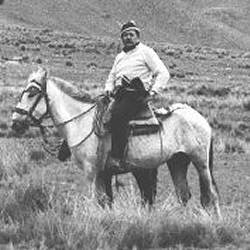Want to host Linnaeus’ Legacy? Go to the Carnival’s home or drop Christopher a note: gerarus at westnet dot com dot au.
And my apologies to John Wilkins for getting the link to his piece about John Ray wrong. It is now correct.
Give back, I foolishly thought. Blog Carnivals give me great pleasure, open my eyes to new stuff, and bring new eyes to our stuff. So why not host one? We’re all about agricultural biodiversity, so there was one obvious choice: “Linnaeus’ Legacy: A monthly carnival celebrating the diversity of life on this planet, and the methods we use to understand it.” Some Carnival hosts manage to weave a strong narrative around the disparate posts; I’m not sure I can manage that, but here goes:
The basis of classification these days is the species. So who came up with the idea? Not Linnaeus, but John Ray, whose 381st birthday John Wilkins celebrated on 29 November. A fascinating post, which explains how Ray gave birth both to creationism and sound natural history and evolution. “[O]nce the idea of species was formally proposed, and Ray held they were fixed, it took a very short time for them to be thought of as mutable.”
From there it is but a hop, skip and a jump to one of the BIG questions: Why do we use evolutionary relationships as the basis of classification in the first place? Christopher Taylor, onlie begetter of this Carnival, tries for a big answer, and succeeds.
Chris also tackles one of the questions that, I confess, has never really bothered me: Hebe or Veronica? To a non-botanist, that would be like asking Archie or Jughead, but you should know that “New Zealand’s flora would still be of interest even if the country’s vegetation was solely composed of hebes”.
Staying down in the Pacific, GrrlScientist has the straight dope on a newly-discovered gecko from the island of Espiritu Santu in Vanuatu. It’s a story of slaughter and wastage, and, according to the scientists, the first time a lizard holotype has been based on a specimen raised from an egg.
Ever heard of a poisonous bird? I had a vague recollection that one such was the hoatzin, but that’s unconfirmed. (And fear not, I have no intention of doing the hoatzin’s phylogeny.) Thanks to GrrlScientist (again) I can, however, confirm that there are lots of poisonous birds, that the trait has evolved independently in closely-related lines, and that the toxin in question links these birds with poison-arrow frogs and some beetles. Who knew?
Want to draw your own phylogenies, like the ones GrrlScientist displays? You need to head over to A three pound monkey brain, where Mike Keesey explains Names on Nodes, a program he’s been working on that will allow researchers to view phylogenetic hypotheses as tree diagrams. I’ll be perfectly honest, I’m not able to assess this at all. Maybe it could make sense of the domestication of rice, something that has confused scientists since the time of the great plant explorer N.I. Vavilov.
The Lord Geekington Cameron McCormick says that “as an even younger person I annoyed neighbors and my parents with facts I knew about animals. Blogging appears to be an extension of this”. Amen to that. So what does he know about Gigantosaurus? “It is not Giganotosaurus, a late Cretaceous carcharodontosaurid theropod rivaling Tyrannosaurus for size.” Cleverclogs; no wonder your neighbours were annoyed. But all of us here will be thrilled.
Gigantosaurus — whatever is was — just whetted my appetite for more fossil news. Thanks, then, to Zachary Miller’s explanation of How the Turtle Got its Shell. It wasn’t easy, that much I can say. “The problem with turtles is that they have a ridiculously derived body plan, totally different from any other animal, either living or extinct.” Kipling would be proud.
Now, about that agricultural biodiversity … it isn’t all ours! Julie Craves talks about pesticide resistance in Hypothenemus hampei, “the most serious insect pest of coffee”. These little borers seem to develop resistance to the main insecticide, endosulfan, at the drop of a hat. Julie points out that biodiversity offers the best ways to deal with coffee cherry borers, resistant and otherwise. But why do they develop resistance so easily? It’s all down to highly-skewed sex ratios and inbreeding. Which naturally takes me floating back to W.D. Hamilton’s absolutely wonderful 1967 paper. Time to dredge out Narrow Roads of Gene Land again.
I can’t leave it there though. My fellow bloggers would never forgive me. For them then, and you, we have Robert on Over-utilized crops?, Jacob on Darwin in London, and Luigi on CWR and medicinal species in botanic gardens. My work here is almost done.
Just one thing … for anyone who doesn’t know her writing, can I recommend Andrea Barrett? In particular, if you are a fan of Linneaus, read The English Pupil in Ship Fever. Then read everything else she has written, and come back here and tell me what you thought of it.
